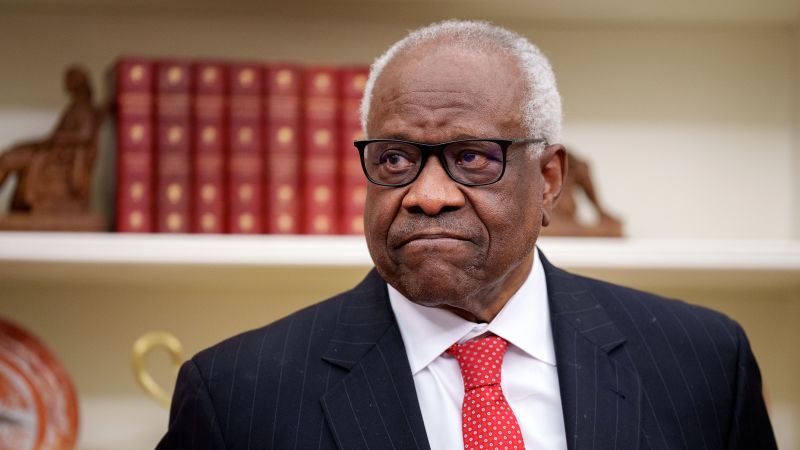Supreme Court Justice Clarence Thomas is pushing for a significant reevaluation of the Voting Rights Act (VRA), particularly its provisions that seek to protect minority voting rights. For decades, Thomas has argued that certain aspects of the VRA exacerbate racial tensions rather than alleviate them. With a changing composition of the court, Thomas’s views are gaining traction, raising concerns about the future of minority voting protections.
A recent order from the Supreme Court regarding a redistricting case in Louisiana suggests that the justices are seriously considering altering the scope of VRA safeguards. This examination comes at a time when states, especially Alabama, are resisting court mandates aimed at rectifying discrimination in voting practices. The implications of the court’s actions may have lasting effects on congressional maps for the upcoming 2026 elections and beyond.
The Louisiana case has drawn particular attention since the justices announced on June 27, the final day of their regular session, that they could not reach a resolution on the matter, which had been argued in March. This decision to reargue the case in the upcoming session starting in October could signal significant consequences for how voting districts are drawn in the future.
Thomas has expressed urgency in addressing the court’s interpretation of the VRA, specifically its Section 2, which mandates that race must be considered to ensure equitable representation in congressional and state legislative districts. He contends that this section conflicts with the Constitution’s guarantee of equal protection. In a dissenting statement to the court’s June order, Thomas stated, “I am hopeful that this Court will soon realize that the conflict its Section 2 jurisprudence has sown with the Constitution is too severe to ignore.”
While Thomas’s dissent did not garner support from other justices, past interactions suggest a growing alignment with his views among conservative justices. Justice Neil Gorsuch, who succeeded Antonin Scalia, has previously echoed sentiments that critique the court’s voting rights jurisprudence. Justices Samuel Alito and Amy Coney Barrett have also shown inclination towards a “race-neutral” approach in redistricting, aligning themselves with Thomas’s perspective.
The debate around the VRA’s Section 2 has become increasingly politicized, as minority voters typically lean Democratic. The stakes are particularly high in the Louisiana case, which arose after a U.S. district court found that the original congressional map, which included only one Black-majority district, likely violated Section 2 of the VRA. In response, the Louisiana legislature redrew the map to create two Black-majority districts, but critics argue this was done primarily to protect incumbents.
In the face of these changes, a group of predominantly White voters has filed a lawsuit alleging that the revised map constitutes a racial gerrymander. This legal challenge reflects a broader discussion on whether the VRA’s provisions are still necessary or relevant, particularly as some argue that voter demographics are shifting towards greater integration.
Additionally, the Supreme Court may soon address whether private individuals and advocacy groups have the standing to sue under the VRA’s Section 2. This question has gained prominence as the Trump Administration‘s Justice Department has shifted its stance on voting rights, withdrawing from various cases. A ruling against private plaintiffs could limit the enforceability of voting rights in certain jurisdictions, particularly following a recent decision by the 8th U.S. Circuit Court of Appeals that restricted such actions.
The ongoing discussions around the Voting Rights Act reflect a complex and evolving legal landscape. As the Supreme Court prepares to hear the Louisiana case again, the potential implications for minority voting rights remain significant. The justices’ decisions could redefine the parameters of how race is considered in electoral districting, impacting generations of voters.
